#revisiting
Explore tagged Tumblr posts
Text


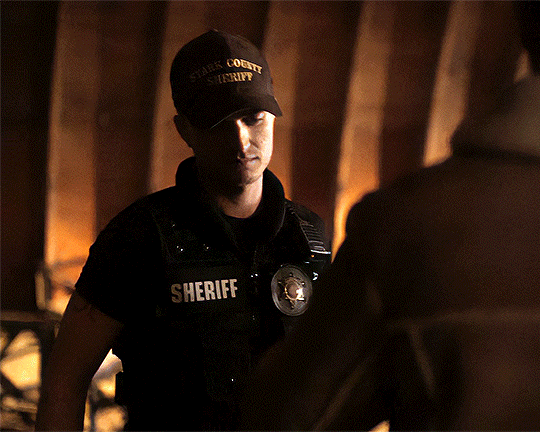
Joe Keery with Gator Tillman's daddy issues. Fargo
306 notes
·
View notes
Text
come, sit here by my side a while. I’ll get you lemonade and a slice of cheesecake. tell me, what have you been going through? do you still hate being in the same room as your father? do you still ignore it when tears roll down your face at the thought of your seventh birthday? wait, let me wipe your face, you’ve got a bit of cheesecake on the upper right side of your smile. yes, I’ve been fine. the nights are easier when you actually lay your head on the pillow and close your eyes and sleep allows you in. no, it wasn’t the medication that helped me, it was sitting through the discomfort and difficult feelings. yes, they still visit from time to time but now I know how to manage them better. do you want a smoke? no, I won’t lecture you on the ill effects of smoking. yes, I smoke too now. when did that happen? oh, just something my mid twenties demanded of me, I suppose. go on, take that call, I can wait. is everything fine? tell your mum I say hi. no, I don’t have to rush. yes, we can take a walk in the park. what’s that? oh, you want to hold my hand? no, I’d rather you not. it took me three years after you left my hand the last time to be okay with the lack of warmth. I don’t have three more years to re-teach my body to be comfortable in its inherent state of isolation. but we can walk side by side and talk about life until you catch your flight. how does that sound? yes, I’ll let you buy me flowers.
#spilled ink#poeticstories#writerscreed#writers on tumblr#poets on tumblr#poetryportal#spilled thoughts#conversations#conversations with friends#friends and lovers#love#revisiting#holding hands#creatingnikki
117 notes
·
View notes
Text
The (open) web is good, actually
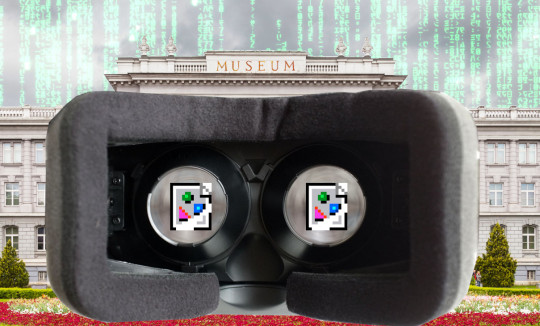
I'll be at the Studio City branch of the LA Public Library tonight (Monday, November 13) at 1830hPT to launch my new novel, The Lost Cause. There'll be a reading, a talk, a surprise guest (!!) and a signing, with books on sale. Tell your friends! Come on down!

The great irony of the platformization of the internet is that platforms are intermediaries, and the original promise of the internet that got so many of us excited about it was disintermediation – getting rid of the middlemen that act as gatekeepers between community members, creators and audiences, buyers and sellers, etc.
The platformized internet is ripe for rent seeking: where the platform captures an ever-larger share of the value generated by its users, making the service worst for both, while lock-in stops people from looking elsewhere. Every sector of the modern economy is less competitive, thanks to monopolistic tactics like mergers and acquisitions and predatory pricing. But with tech, the options for making things worse are infinitely divisible, thanks to the flexibility of digital systems, which means that product managers can keep subdividing the Jenga blocks they pulling out of the services we rely on. Combine platforms with monopolies with digital flexibility and you get enshittification:
https://pluralistic.net/2023/01/21/potemkin-ai/#hey-guys
An enshittified, platformized internet is bad for lots of reasons – it concentrates decisions about who may speak and what may be said into just a few hands; it creates a rich-get-richer dynamic that creates a new oligarchy, with all the corruption and instability that comes with elite capture; it makes life materially worse for workers, users, and communities.
But there are many other ways in which the enshitternet is worse than the old good internet. Today, I want to talk about how the enshitternet affects openness and all that entails. An open internet is one whose workings are transparent (think of "open source"), but it's also an internet founded on access – the ability to know what has gone before, to recall what has been said, and to revisit the context in which it was said.
At last week's Museum Computer Network conference, Aaron Straup Cope gave a talk on museums and technology called "Wishful Thinking – A critical discussion of 'extended reality' technologies in the cultural heritage sector" that beautifully addressed these questions of recall and revisiting:
https://www.aaronland.info/weblog/2023/11/11/therapy/#wishful
Cope is a museums technologist who's worked on lots of critical digital projects over the years, and in this talk, he addresses himself to the difference between the excitement of the galleries, libraries, archives and museums (GLAM) sector over the possibilities of the web, and why he doesn't feel the same excitement over the metaverse, and its various guises – XR, VR, MR and AR.
The biggest reason to be excited about the web was – and is – the openness of disintermediation. The internet was inspired by the end-to-end principle, the idea that the network's first duty was to transmit data from willing senders to willing receivers, as efficiently and reliably as possible. That principle made it possible for whole swathes of people to connect with one another. As Cope writes, openness "was not, and has never been, a guarantee of a receptive audience or even any audience at all." But because it was "easy and cheap enough to put something on the web," you could "leave it there long enough for others to find it."
That dynamic nurtured an environment where people could have "time to warm up to ideas." This is in sharp contrast to the social media world, where "[anything] not immediately successful or viral … was a waste of time and effort… not worth doing." The social media bias towards a river of content that can't be easily reversed is one in which the only ideas that get to spread are those the algorithm boosts.
This is an important way to understand the role of algorithms in the context of the spread of ideas – that without recall or revisiting, we just don't see stuff, including stuff that might challenge our thinking and change our minds. This is a much more materialistic and grounded way to talk about algorithms and ideas than the idea that Big Data and AI make algorithms so persuasive that they can control our minds:
https://pluralistic.net/2023/11/06/attention-rents/#consumer-welfare-queens
As bad as this is in the social media context, it's even worse in the context of apps, which can't be linked into, bookmarked, or archived. All of this made apps an ominous sign right from the beginning:
https://memex.craphound.com/2010/04/01/why-i-wont-buy-an-ipad-and-think-you-shouldnt-either/
Apps interact with law in precisely the way that web-pages don't. "An app is just a web-page wrapped in enough IP to make it a crime to defend yourself against corporate predation":
https://pluralistic.net/2023/08/27/an-audacious-plan-to-halt-the-internets-enshittification-and-throw-it-into-reverse/
Apps are "closed" in every sense. You can't see what's on an app without installing the app and "agreeing" to its terms of service. You can't reverse-engineer an app (to add a privacy blocker, or to change how it presents information) without risking criminal and civil liability. You can't bookmark anything the app won't let you bookmark, and you can't preserve anything the app won't let you preserve.
Despite being built on the same underlying open frameworks – HTTP, HTML, etc – as the web, apps have the opposite technological viewpoint to the web. Apps' technopolitics are at war with the web's technopolitics. The web is built around recall – the ability to see things, go back to things, save things. The web has the technopolitics of a museum:
https://www.aaronland.info/weblog/2014/09/11/brand/#dconstruct
By comparison, apps have the politics of a product, and most often, that product is a rent-seeking, lock-in-hunting product that wants to take you hostage by holding something you love hostage – your data, perhaps, or your friends:
https://www.eff.org/deeplinks/2021/08/facebooks-secret-war-switching-costs
When Anil Dash described "The Web We Lost" in 2012, he was describing a web with the technopolitics of a museum:
where tagging was combined with permissive licenses to make it easy for people to find and reuse each others' stuff;
where it was easy to find out who linked to you in realtime even though most of us were posting to our own sites, which they controlled;
where a link from one site to another meant one person found another person's contribution worthy;
where privacy-invasive bids to capture the web were greeted with outright hostility;
where every service that helped you post things that mattered to you was expected to make it easy for you take that data back if you changed services;
where inlining or referencing material from someone else's site meant following a technical standard, not inking a business-development deal;
https://www.anildash.com/2012/12/13/the_web_we_lost/
Ten years later, Dash's "broken tech/content culture cycle" described the web we live on now:
https://www.anildash.com/2022/02/09/the-stupid-tech-content-culture-cycle/
found your platform by promising to facilitate your users' growth;
order your technologists and designers to prioritize growth above all other factors and fire anyone who doesn't deliver;
grow without regard to the norms of your platform's users;
plaster over the growth-driven influx of abusive and vile material by assigning it to your "most marginalized, least resourced team";
deliver a half-assed moderation scheme that drives good users off the service and leaves no one behind but griefers, edgelords and trolls;
steadfastly refuse to contemplate why the marginalized users who made your platform attractive before being chased away have all left;
flail about in a panic over illegal content, do deals with large media brands, seize control over your most popular users' output;
"surface great content" by algorithmically promoting things that look like whatever's successful, guaranteeing that nothing new will take hold;
overpay your top performers for exclusivity deals, utterly neglect any pipeline for nurturing new performers;
abuse your creators the same ways that big media companies have for decades, but insist that it's different because you're a tech company;
ignore workers who warn that your product is a danger to society, dismiss them as "millennials" (defined as "anyone born after 1970 or who has a student loan")
when your platform is (inevitably) implicated in a murder, have a "town hall" overseen by a crisis communications firm;
pay the creator who inspired the murder to go exclusive on your platform;
dismiss the murder and fascist rhetoric as "growing pains";
when truly ghastly stuff happens on your platform, give your Trust and Safety team a 5% budget increase;
chase growth based on "emotionally engaging content" without specifying whether the emotions should be positive;
respond to ex-employees' call-outs with transient feelings of guilt followed by dismissals of "cancel culture":
fund your platforms' most toxic users and call it "free speech";
whenever anyone disagrees with any of your decisions, dismiss them as being "anti-free speech";
start increasing how much your platform takes out of your creators' paychecks;
force out internal dissenters, dismiss external critics as being in conspiracy with your corporate rivals;
once regulation becomes inevitable, form a cartel with the other large firms in your sector and insist that the problem is a "bad algorithm";
"claim full victim status," and quit your job, complaining about the toll that running a big platform took on your mental wellbeing.
https://pluralistic.net/2022/02/18/broken-records/#dashes
The web wasn't inevitable – indeed, it was wildly improbable. Tim Berners Lee's decision to make a new platform that was patent-free, open and transparent was a complete opposite approach to the strategy of the media companies of the day. They were building walled gardens and silos – the dialup equivalent to apps – organized as "branded communities." The way I experienced it, the web succeeded because it was so antithetical to the dominant vision for the future of the internet that the big companies couldn't even be bothered to try to kill it until it was too late.
Companies have been trying to correct that mistake ever since. After three or four attempts to replace the web with various garbage systems all called "MSN," Microsoft moved on to trying to lock the internet inside a proprietary browser. Years later, Facebook had far more success in an attempt to kill HTML with React. And of course, apps have gobbled up so much of the old, good internet.
Which brings us to Cope's views on museums and the metaverse. There's nothing intrinsically proprietary about virtual worlds and all their permutations. VRML is a quarter of a century old – just five years younger than Snow Crash:
https://en.wikipedia.org/wiki/VRML
But the current enthusiasm for virtual worlds isn't merely a function of the interesting, cool and fun experiences you can have in them. Rather, it's a bid to kill off whatever is left of the old, good web and put everything inside a walled garden. Facebook's metaverse "is more of the same but with a technical footprint so expensive and so demanding that it all but ensures it will only be within the means of a very few companies to operate."
Facebook's VR headsets have forward-facing cameras, turning every users into a walking surveillance camera. Facebook put those cameras there for "pass through" – so they can paint the screens inside the headset with the scene around you – but "who here believes that Facebook doesn't have other motives for enabling an always-on camera capturing the world around you?"
Apple's VisionPro VR headset is "a near-perfect surveillance device," and "the only thing to save this device is the trust that Apple has marketed its brand on over the last few years." Cope notes that "a brand promise is about as fleeting a guarantee as you can get." I'll go further: Apple is already a surveillance company:
https://pluralistic.net/2022/11/14/luxury-surveillance/#liar-liar
The technopolitics of the metaverse are the opposite of the technopolitics of the museum – even moreso than apps. Museums that shift their scarce technology budgets to virtual worlds stand a good chance of making something no one wants to use, and that's the best case scenario. The worst case is that museums make a successful project inside a walled garden, one where recall is subject to corporate whim, and help lure their patrons away from the recall-friendly internet to the captured, intermediated metaverse.
It's true that the early web benefited from a lot of hype, just as the metaverse is enjoying today. But the similarity ends there: the metaverse is designed for enclosure, the web for openness. Recall is a historical force for "the right to assembly… access to basic literacy… a public library." The web was "an unexpected gift with the ability to change the order of things; a gift that merits being protected, preserved and promoted both internally and externally." Museums were right to jump on the web bandwagon, because of its technopolitics. The metaverse, with its very different technopolitics, is hostile to the very idea of museums.
In joining forces with metaverse companies, museums strike a Faustian bargain, "because we believe that these places are where our audiences have gone."
The GLAM sector is devoted to access, to recall, and to revisiting. Unlike the self-style free speech warriors whom Dash calls out for self-serving neglect of their communities, the GLAM sector is about preservation and access, the true heart of free expression. When a handful of giant companies organize all our discourse, the ability to be heard is contingent on pleasing the ever-shifting tastes of the algorithm. This is the problem with the idea that "freedom of speech isn't freedom of reach" – if a platform won't let people who want to hear from you see what you have to say, they are indeed compromising freedom of speech:
https://pluralistic.net/2022/12/10/e2e/#the-censors-pen
Likewise, "censorship" is not limited to "things that governments do." As Ada Palmer so wonderfully describes it in her brilliant "Why We Censor: from the Inquisition to the Internet" speech, censorship is like arsenic, with trace elements of it all around us:
https://www.youtube.com/watch?v=uMMJb3AxA0s
A community's decision to ban certain offensive conduct or words on pain of expulsion or sanction is censorship – but not to the same degree that, say, a government ban on expressing certain points of view is. However, there are many kinds of private censorship that rise to the same level as state censorship in their impact on public discourse (think of Moms For Liberty and their book-bannings).
It's not a coincidence that Palmer – a historian – would have views on censorship and free speech that intersect with Cope, a museum worker. One of the most brilliant moments in Palmer's speech is where she describes how censorship under the Inquistion was not state censorship – the Inquisition was a multinational, nongovernmental body that was often in conflict with state power.
Not all intermediaries are bad for speech or access. The "disintermediation" that excited early web boosters was about escaping from otherwise inescapable middlemen – the people who figured out how to control and charge for the things we did with one another.
When I was a kid, I loved the writing of Crad Kilodney, a short story writer who sold his own self-published books on Toronto street-corners while wearing a sign that said "VERY FAMOUS CANADIAN AUTHOR, BUY MY BOOKS" (he also had a sign that read, simply, "MARGARET ATWOOD"). Kilodney was a force of nature, who wrote, edited, typeset, printed, bound, and sold his own books:
https://www.theglobeandmail.com/arts/books/article-late-street-poet-and-publishing-scourge-crad-kilodney-left-behind-a/
But there are plenty of writers out there that I want to hear from who lack the skill or the will to do all of that. Editors, publishers, distributors, booksellers – all the intermediaries who sit between a writer and their readers – are not bad. They're good, actually. The problem isn't intermediation – it's capture.
For generations, hucksters have conned would-be writers by telling them that publishing won't buy their books because "the gatekeepers" lack the discernment to publish "quality" work. Friends of mine in publishing laughed at the idea that they would deliberately sideline a book they could figure out how to sell – that's just not how it worked.
But today, monopolized film studios are literally annihilating beloved, high-priced, commercially viable works because they are worth slightly more as tax writeoffs than they are as movies:
https://deadline.com/2023/11/coyote-vs-acme-shelved-warner-bros-discovery-writeoff-david-zaslav-1235598676/
There's four giant studios and five giant publishers. Maybe "five" is the magic number and publishing isn't concentrated enough to drop whole novels down the memory hole for a tax deduction, but even so, publishing is trying like hell to shrink to four:
https://pluralistic.net/2022/11/07/random-penguins/#if-you-wanted-to-get-there-i-wouldnt-start-from-here
Even as the entertainment sector is working to both literally and figuratively destroy our libraries, the cultural heritage sector is grappling with preserving these libraries, with shrinking budgets and increased legal threats:
https://blog.archive.org/2023/03/25/the-fight-continues/
I keep meeting artists of all description who have been conditioned to be suspicious of anything with the word "open" in its name. One colleague has repeatedly told me that fighting for the "open internet" is a self-defeating rhetorical move that will scare off artists who hear "open" and think "Big Tech ripoff."
But "openness" is a necessary precondition for preservation and access, which are the necessary preconditions for recall and revisiting. Here on the last, melting fragment of the open internet, as tech- and entertainment-barons are seizing control over our attention and charging rent on our ability to talk and think together, openness is our best hope of a new, good internet. T
he cultural heritage sector wants to save our creative works. The entertainment and tech industry want to delete them and take a tax writeoff.
As a working artist, I know which side I'm on.

If you'd like an essay-formatted version of this post to read or share, here's a link to it on pluralistic.net, my surveillance-free, ad-free, tracker-free blog:
https://pluralistic.net/2023/11/13/this-is-for-everyone/#revisiting

Image: Diego Delso (modified) https://commons.wikimedia.org/wiki/File:Museo_Mimara,_Zagreb,_Croacia,_2014-04-20,_DD_01.JPG
CC BY-SA 4.0 https://creativecommons.org/licenses/by-sa/4.0/
#pluralistic#ar#xr#vr#augmented reality#extended reality#virtual reality#museums#cultural preservation#aaron cope#Museum Computer Network#cultural heritage#glam#access#open access#revisiting#mr#mixed reality#asynchronous#this is for everyone#freedom of reach#gatekeepers#metaverse#technofeudalism#privacy#brick on the face#rent-seeking
189 notes
·
View notes
Text
Just when you thought you mastered a class… A few years later, it presents itself again.
Tlw
#poetry#love#thoughts#wisdom#poem#words#within#spilled ink#inspirit#rap#humility#Grace#Revisiting#Remembering#I got this#Self exploration#Class of life#Creating#Creation#masterpiece
9 notes
·
View notes
Text
Return

Title: Return
Fandom: Agents of Shield
Relationships: general
Characters: Daisy Johnson and Melinda May (background other favourites)
Summary: A new opportunity at Sheild gives Daisy the chance to revisit somewhere important to her
Written for the ficwip @genuaryjubilee for the prompt:person place or thing. I really enjoyed doing this challenge!
#daisy johnson#agents of shield#aos#melinda may#reflection#revisiting#nostalgia#revisiting the past#my fic
6 notes
·
View notes
Note
What scenes do you think will be revisited in the future?
IF they actually revisit (and not "just" talk about it): the tower, the fight and the trial, likely.
We could also get to see Lestat's version of it as a musical scene or a music video, I think that's totally possible and within the canon context, too.
I do not think they will revisit more. Apart from Armand's and Lestat's history, obviously, but then I wouldn't call that "revisiting"... Armand's version was so clearly a little fanfic he told^^.
#Anonymous#ask nalyra#iwtv s3#iwtv#amc iwtv#interview with the vampire#interview with the vampire s3#future season speculation#revisiting
12 notes
·
View notes
Text
"...for the growing good of the world is partly dependent on unhistoric acts; and that things are not so ill with you and me as they might have been, is half owing to the number who lived faithfully a hidden life, and rest in unvisited tombs."
— George Eliot, from Middlemarch
17 notes
·
View notes
Text
I think tomorrow I'm going to look back on some old ideas and see if I can make them into something I like a little better, wish me luck!
5 notes
·
View notes
Text
It's hard knowing that there are people who do not like me
and haven't seen the best of me. Their opinions -- if they even think of me at all -- most likely do not hold me in high regard. I was a burden and difficult and troublesome. I made their life harder and they had to remove me from their environment.
It's embarassing more than anything. I know that I'm a person -- and thus good and bad and many other things -- but I take a lot more pride and comfort in the things that make me good (cheerful, encouraging, and warm) than the things that make me bad (burdensome, difficult, and troublesome). I do not enjoy all parts of myself equally. I don't even tolerate all parts of myself equally. I gravitate -- as most do, I'm sure -- to the parts that feel like soft sun on my face. Hell, I lean in towards the parts that feel like oxygen supersaturated wind, that ramp me up into a manic torando. I drag my feet towards the parts that bring me back towards the Earth. I (some parts of me) hate the dirt and the mud. And some of my most crucial parts live there. Unlike (some of) me, they never get to leave. Yet, they have made a home.
These are grounded parts of me. These are the parts of me that accept reality as it is. Sometimes the sun warms them and other times the breeze blusters through, but they cannot rely on it because it is not as steadfast as the mud.
They carve and shape embarassment out of humiliating circumstance and place their small creations along side other titles like; shame, rejection, and jealousy. It is an art gallery I refuse to visit and in doing so, often add to it.
I think I dislike these parts and their collections because I have proof that they are unlikeable. Because others (external) have disliked them. I am someone who tends to trust others over myself. I am someone who, only recently, have pondered the idea that maybe, just maybe, I know whats good for myself and everyone else is simply offering opinions and perspectives that inform, not dictate, the decisions I make.
So I am making a decision, against what the external has told me. I love the dirt. I love the mud. I love the creations of my creatures. They are artists. They make home whereever they go. They are the parts of me that persist without sun and sustinence. I am grateful for them. I will visit their empty bog of slowly melting sculptures and truly appreciate the toil and work of the masterpiece before it coalesces with it's source, ready to made new again -- and carrying more weight of emotion than before.
I love the parts of me that make me feel good because others love them too. I love the parts of me that create their shameful sculptures because they are the parts that fight for me, protect me, and exist in spite of others for me and only me. It is upsetting knowing that these parts of me are not widely loved and adored. They are enough for me. And if I am deserving and work hard, I will be enough for them too.
#internal family systems#internal family structures#personal#revisiting#shame#reality acceptance#digital diary#journal#I add tags because I want this to be seen#I want to feel seen#I want to see others
2 notes
·
View notes
Text
@frownyalfred mentioned bear traps yesterday and i suddenly?? remembered??? i wrote this?? like if you had asked me two days ago if i had written a jason and damian story, this WOULD NOT have occurred to me to be on that list, bc my brain just YEETED it
38 notes
·
View notes
Text
So, I rewatched Joel Schumacher's 'Phantom of the Opera', a movie I was obsessed with as a teenager and new adult.
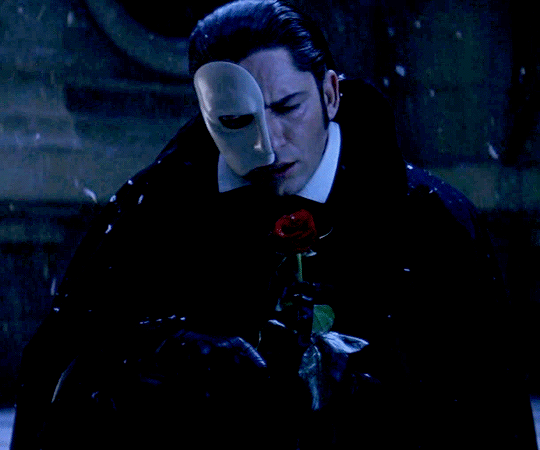
And I had THOUGHTS.
Being in a committed relationship has given me (someone who doesn't always do much rewatching) the chance to revisit and reappraise art from my childhood and adolescence.
And I'm working on being kind to my younger self.
There was a time when I was obsessed with this movie, if you had asked me as a 15 to 18 years old to name my favorite movies this would have been one of them. Now I'm a few years shy of thirty, I've studied film at the Masters level, I've studied and written on musical theater and opera. Importantly I've seen Phantom live and I've seen the Royal Albert Hall recording. All this to say that I'm very aware of this films shortcomings as an adaptation, as a musical, and even as a film.
But I think it's still a 'good' film.
Because, despite this films shortcomings, understanding why I liked it at a teenager helped me appreciate it.
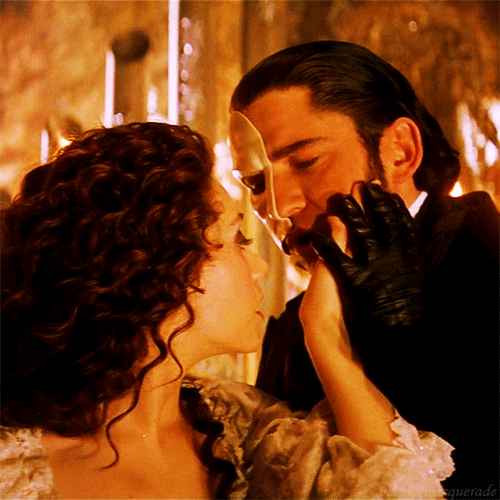
I don't know if this is a hot take, but in the original show, the Phantom is not only the antagonist but his relationship with Christine is creepy. He is older than her by enough that she at first thinks he is the ghost of her father and his more sexual feelings toward her coincide with the increasing body count and other factors that reveal him as an increasingly malevolent force. It's one of the things that makes the show so good.
The film makes the Phantom's position as antagonist much more complicated by aging him down. Gerard Butler plays the phantom as a young man and the rewrites make his and Christina's ages closer. The idea of him as the spirit of her father is downplayed, and the sexual tension between Christina and Phantom is played up.
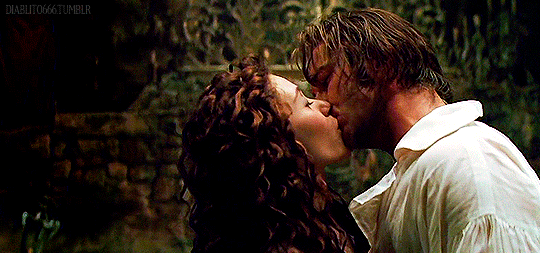
It's important to note that while this is an adaptation of Andrew Lloyd Webber's musical that he is producing made by his production company, Joel Schumacher not only directs the film but is credited as the co-writer.
So I will credit him with the changes between the stage show and the film.
This makes sense when you look at Schumacher's body of work. Sexual tension (be it heterosexual or homosexual), physical beauty, and young people discovering themselves and the world are ideas that appear in his work again and again. Film phantom is a Schumacher protagonist, an alienated young person trying to figure out where he fits in the world. A man who understands love as something good that he wants but is clumsy about how to actual go about pursuing it. A man of restrained passions and feelings he can't express. In the song 'No One Would Listen' (a film original song that didn't make it into the film beyond the credits) the phantom sings about how his love of Christine and his love of music both came about from feeling profoundly lonely following his escape from the carnival and being drawn to something beautiful.
Webber's phantom is a predatory man, Schumacher's phantom is a lonely boy.
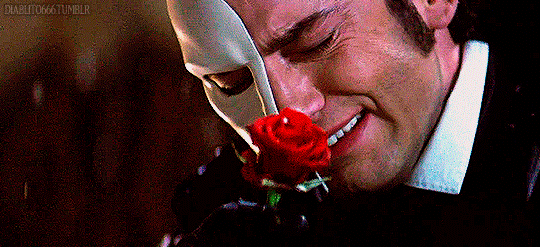
And this profoundly changes the work, it's a subtle change that flew over the heads of most critics, both professional or pop culture (looking at the Lindsey Ellis squad) but it's a changes that fundamentally changes the work. It becomes a work of art meant for lonely young men who feel hated by the world for reasons beyond their understanding. And for those men and boys it shows them how destructive their actions have the potentially to really be when they lash out from their loneliness.
"The tears I shed for your sad fate, grow cold and turn to tears of hate."
It's a messy work, but one that has value as a work of transitional adolescent media. Similar to the first Twilight where it gives adolescents a space to feel certain emotions and should be given some grace for that good.
#cinema#art#film#art appreciation#phantom of the opera#adolescence#revisiting#teenagers#musical movies#joel schumacher#gerard butler#emo#2000s emo#emotions#andrew lloyd webber
13 notes
·
View notes
Text
I’ve been thinking about actively posting on Tumblr again. Clearly I haven’t yet.
I get so lost in thought… I forget to come back and release.
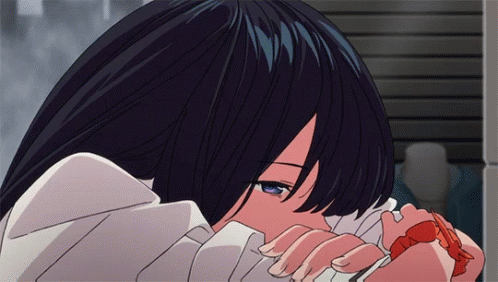
2 notes
·
View notes
Link
Pin On Products – Revisiting A Pair Of Reticulated White And Yellow gold Bands We Did In …
Welcome to our Esteem the remarkable with our site! If you are Acknowledging the radiant for flat gold wedding band, you’ve Become a source of the miraculous in the perfect Marketplace. We pr…
#Pin #On #Products #Revisiting #A #Pair #Of #Reticulated #White #And #Yellow #Bands #We #Did #In
0 notes
Note
The murder scene will be revisited, but we know that canonically Lestat called Louis' name several times, do you think he really thought Louis would help him? Even if in the show he knew Louis was part of the plan? Was it shocking for him that Louis did nothing?
Not just the murder scene though.... (supposedly):
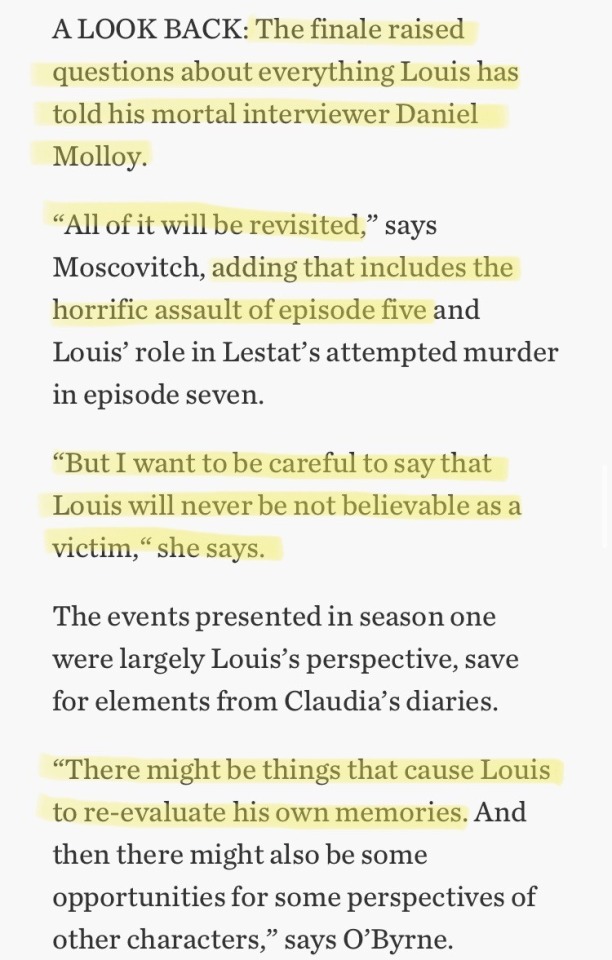
That said, and I said this before, I firmly believe it was Claudia who slit Lestat's throat, like in the book.
Louis only wanted to, like he wanted to slit his throat in the narrative at the Fair Play, and like he said he did in the church (the stab wounds are later gone!), and of course this... incredibly star-crossed ending is much nicer to tell of than the harsh, brutal truth.
I think they will draw it back to the books, yes.
If they make Lestat call out for Louis 12 times, it will be harrowing.
We already know he said something very similar as in the book, namely "put me in my coffin, Louis, Louis". And we know the tale broke and that what we saw was not the truth. 🤷🏽♀️
So yes. I think Lestat hoped Louis would help him... and part of the "terrible" thing Louis did once was... standing by once more. And it must have been blank horror and debilitating disappointment and pain, yes.
#Anonymous#asks#ask nalyra#amc iwtv#iwtv#amc interview with the vampire#interview with the vampire amc#iwtv amc#iwtv 2022#interview with the vampire#lestat de lioncourt#louis de pointe du lac#loustat#future season speculation#murder night#victim#revisiting#iwtv s2
34 notes
·
View notes

